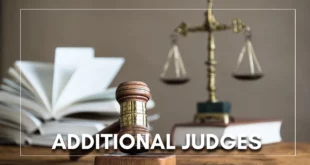TOPICS COVERED:
Structure, organization and functioning of the Executive and the Judiciary—Ministries and Departments of the Government; pressure groups and formal/informal associations and their role in the Polity.
Context:
The ongoing arguments before a Constitution Bench of the Supreme Court on the abrogation of Jammu and Kashmir’s special status under Article 370 throw considerable light on the history behind the unique status enjoyed by the State until August 2019, when the Centre removed it.
Why was J&K given special status?
- Jammu and Kashmir was accorded special status because of the circumstances in which it acceded to India soon after Independence.
- By October 1947, Maharaja Hari Singh was faced with regular military attacks from the Pakistan side.
- There was mass infiltration by heavily armed tribesmen from the North-West Frontier into Kashmir.
- In a letter to India’s Governor-General, Lord Mountbatten, on October 26, 1947, he sought help from India.
- He attached an ‘Instrument of Accession’ with the letter.
- It was not unconditional.
- He specified matters on which the Dominion legislature may make laws for Jammu and Kashmir, but the rest of the powers were to be retained by the State.
Was the accession temporary?
- While India was then ruled under the provisions of the Government of India Act, 1935, Jammu and Kashmir had its own Constitution since 1939.
- In the Instrument of Accession, Hari Singh had laid down a condition that it cannot be altered unless he accepted the change.
- When Article 370 was adopted in the Constituent Assembly of India, care was taken to see that it reflected the clauses and spirit of the Instrument of Accession.
- Hence, the key issue of whether the status could have been abrogated unilaterally is being argued in historical terms, and not merely in legal terms.
Features of Article 370
- It falls under a heading ‘Temporary provisions with respect to the State of Jammu and Kashmir’.
- It has three core principles:
- On items in the Union List and Concurrent List, the power of Parliament to make laws for the State will be limited to those matters that correspond to those specified in the Instrument of Accession; and, even that will be in ‘consultation’ with the State government.
- On other matters in these Lists, Parliament can make laws for the State only with the State government’s ‘concurrence’.
- This is why until before the abrogation, Indian laws did not automatically apply to Jammu and Kashmir.
- Article 1 (which declares India a Union of States) and Article 370 itself were made applicable as such to J&K.
- However, the rest of the Constitution of India would be applicable only through Orders passed by the President from time to time with exceptions and modifications.
- The President could declare it inoperative if there is such a recommendation from the State Constituent Assembly.
How was the special status removed?
- On August 5, 2019, President Ram Nath Kovind initially issued an Order with the concurrence of the State government of Jammu and Kashmir.
- As the State was then under President’s Rule, it is presumed that the State Governor gave such concurrence.
- The Order stated that all the provisions of the Constitution of India, as amended from time to time, will be applicable to Jammu and Kashmir.
- It superseded the Constitution (Application to Jammu and Kashmir) Order, 1954, and the amendments made to it in subsequent years.
- Another resolution was adopted in Parliament to recommend that Article 370 be declared inoperative.
- Parliament was acting on behalf of the J&K Legislative Assembly, which itself was treated as the equivalent of the State’s Constituent Assembly.
- The President issued another order declaring Article 370 inoperative except for a clause that declared that all provisions of the Constitution will apply to J&K.
SOURCE: THE HINDU, THE ECONOMIC TIMES, PIB
 Chinmaya IAS Academy – Current Affairs Chinmaya IAS Academy – Current Affairs
Chinmaya IAS Academy – Current Affairs Chinmaya IAS Academy – Current Affairs



